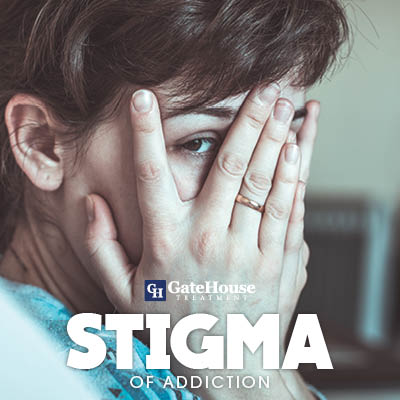
I have written on this topic more than once spanning the course of nearly 10 years. The awareness of addiction in that period of time has increased significantly, and yet one thing persists–the stigma attached to it. I don’t know if we will ever get past it but considering that most people today know someone who is suffering with substance abuse or a drinking problem, it is disheartening and disappointing to say the least. Which is why I wanted to write about it again.
The stigma attached to it encompasses different aspects of the disease, however, the center of it all and the most harmful stigma attached to it is that addicts are bad people choosing to live this kind of life. Addicts are not bad people. They are just people. People who are trying to mask their pain much like the rest of society, they just happen to do it in a way that goes against the social norms and it causes them to occasionally do things that are considered threatening to the community. The stigma is the most threatening thing though. It keeps addicts and alcoholics from getting the help they need at treatment centers.
It keeps them locked up in a cycle of addiction, to afraid to say anything. Masking their pain and their use for fear of judgment. Carrying around them the weight that comes with shame and guilt. Shame and guilt about a disease they don’t quite understand themselves, watching what the rest of the world has to say about addiction. With that said, what are you doing to change it? What are we doing to change it? Especially those of us in recovery. How are we helping the addict who is still suffering with this? Many of us have been there, or know someone who is currently struggling. So, what are we doing?
Here are three great ways to combat the stigma against addiction:
Share and talk about your own recovery
This is the most obvious suggestion but it can also be the most difficult. Sharing our stories of recovery and addiction are not always easy. It takes an immense amount of courage to let the world know you are in recovery. But, we are the best examples society has to remind people that addicts are human too. We can show them what we are like when we have recovered from our disease; the people we truly are. Hopefully instilling a bit of compassion in those people we come across. And maybe it isn’t a public display of your recovery. Maybe, it’s a simple conversation with someone you know about your recovery and your addiction to help them understand better.
Be aware of the language you use when talking about addiction
The types of language we use when talking about ourselves and others in addiction can have a huge impact on the entire stigma. Certain words that have a negative connotation should be avoided if at all possible. This applies whether you are in recovery or not.
Know your facts about addiction
Most people have some idea but don’t totally know the facts regarding addiction. Do some research! Read up on how addiction impacts the brain and the body. How it hijacks someone. This way, when anyone you know comes to you with questions or ideas about it, you can CORRECTLY inform them just what it is. There are plenty of people out there that still think it’s a choice. Set them straight. Which brings us to our next tip.
Speak up when you see something that isn’t right
It is often too easy to just step back and remove yourself from a situation when you don’t agree with what is being said or done. In order to educate people, it’s necessary to step in and speak up. If someone is talking about addiction in a negative manner or using derogatory language, it may just be because they don’t know any better. Having someone explain why that is problematic, may be all they need in order to change their mindset. Even if it’s not, you’ve at least planted a seed for them to consider.
And last but definitely not least….
Encourage others to get help
Asking for help is sometimes viewed as a weakness. Because of this, some people struggling with addiction have a hard time gathering the courage to reach out and seek treatment at treatment centers . Instead, they try to get sober on their own or they continue to drink or use. This can be dangerous, as getting sober on one’s own may lead to dangerous withdrawals. Additionally, it may not be as effective as reaching out for professional help. In order to change people’s perceptions of asking for help, make an effort to talk about it and normalize it. If asking for help becomes something that is viewed as necessary rather than weak, more people may be willing to take that step to better their lives.
For more info or questions, please contact us at GateHouse Treatment today. (855) 448-3588 We are available to you 24/7. You can heal, we can help.
- Cymbalta Withdrawal: Causes, Symptoms, And Management - October 12, 2023
- Boredom in Recovery: 5 Tips to Avoid Relapse - October 6, 2023
- Overconfidence and Rehab: Avoiding Relapse - October 4, 2023




